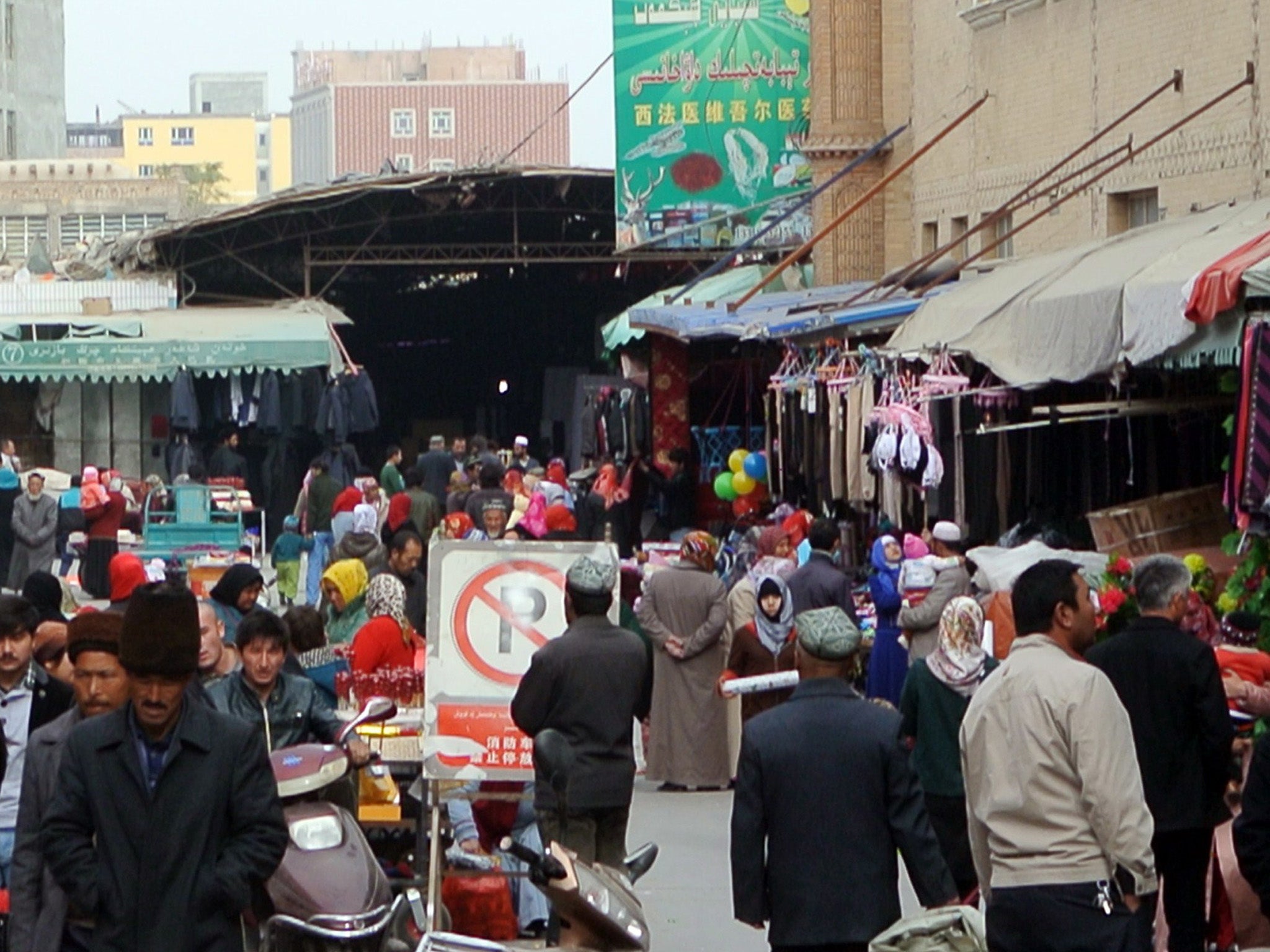Chinese police shoot eight 'terrorists' dead in ethnically tense western region
The deaths are the latest in a string of violent outbursts where local Uighur Muslim people want greater autonomy from Beijing.

Your support helps us to tell the story
This election is still a dead heat, according to most polls. In a fight with such wafer-thin margins, we need reporters on the ground talking to the people Trump and Harris are courting. Your support allows us to keep sending journalists to the story.
The Independent is trusted by 27 million Americans from across the entire political spectrum every month. Unlike many other quality news outlets, we choose not to lock you out of our reporting and analysis with paywalls. But quality journalism must still be paid for.
Help us keep bring these critical stories to light. Your support makes all the difference.
Police in China’s volatile far western region of Xinjiang have shot dead eight “terrorists” who reportedly attacked them with knives and explosives.
The attack happened in Yarkand county close to the old Silk Road city of Kashgar in Xinjiang's far south, the local government said in a statement on its official news website.
“At around 6:30 am, nine thugs carrying knives attacked a police station in Kashgar's Yarkand county, throwing explosive devices and setting police cars on fire,” the brief statement said.
“The police took decisive measures, shooting dead eight and capturing one,” it added, labelling the incident a “violent terrorist attack” which was being investigated further.
The deaths are the latest in a string of violent incidents in the region charged with ethnic tensions, where parts of the native Muslim Uighur population want greater autonomy from Beijing.
Earlier this month, police shot and killed 14 people during a riot near Kashgar in which two policemen were also killed.
Last month meanwhile, at least nine civilians and two policemen were killed when a group of people armed with axes and knives attacked a police station, also near Kashgar.
The Chinese government typically calls such incidents terrorist attacks linked to radicals and has previously blamed some of the violence in Xinjiang on Islamist militants plotting holy war. There is however little evidence that any of the attacks have been carefully organised.
Rights groups and exiles claim police often use often heavy-handed tactics against the Uighur community. Many say China has long overplayed the threat to justify its tough controls in energy-rich Xinjiang, which lies strategically on the borders of Central Asia, India and Pakistan.
Xinjiang's Turkic-speaking Muslim people are unhappy with restrictions on their culture, language and religion, though the government insists it grants them broad freedoms.
In October, three Uighurs drove a vehicle through crowds on the edge of Tiananmen Gate, killing themselves and two tourists.
Subscribe to Independent Premium to bookmark this article
Want to bookmark your favourite articles and stories to read or reference later? Start your Independent Premium subscription today.
Join our commenting forum
Join thought-provoking conversations, follow other Independent readers and see their replies
Comments